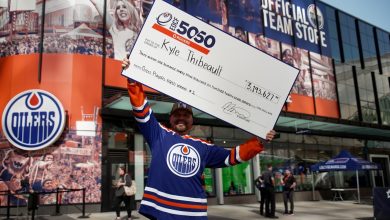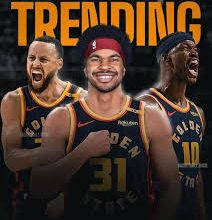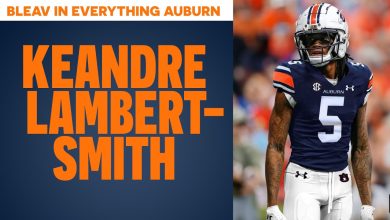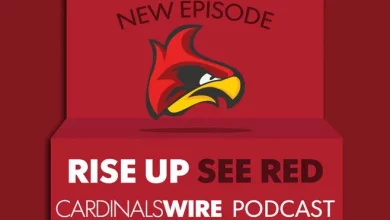In the 2021 off season, the Los Angeles Lakers decided not to re-sign Alex Caruso, and his departure left a hole in the team’s perimeter defense that still hasn’t been filled.
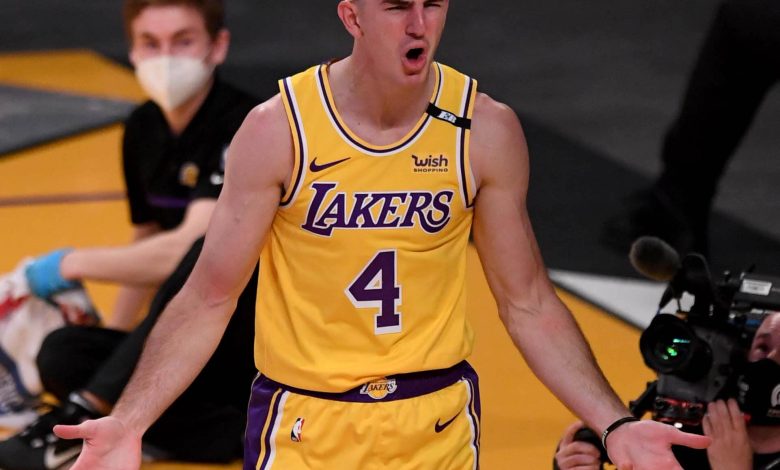
In the 2021 offseason, the Los Angeles Lakers made a decision that, at the time, seemed like a necessary sacrifice in the name of roster flexibility and financial prudence. They chose not to re-sign Alex Caruso, a player who had developed from an undrafted, unheralded prospect into one of the NBA’s premier perimeter defenders and a beloved figure among Lakers fans. Caruso’s exit, reportedly over what amounted to a relatively modest financial gap between his desired salary and what the Lakers were willing to offer, has since become one of the most frequently second-guessed moves in recent Lakers history. His departure left a void on the perimeter that, years later, the team has yet to adequately fill.
Alex Caruso wasn’t a superstar. He didn’t average 20 points per game, he didn’t make All-Star teams, and he didn’t feature heavily in highlight reels. But his value to the Lakers, particularly during their 2020 championship run, went far beyond the box score. Caruso was the quintessential glue guy, a player who consistently made smart plays, executed defensive assignments with discipline, and brought energy, effort, and toughness to every possession. He was the type of player every championship team needs—someone who does the dirty work, embraces a role, and elevates the performance of those around him. The Lakers’ defensive identity, especially on the perimeter, was in many ways shaped by his presence.
During the 2020 playoffs in the Orlando bubble, Caruso’s defensive versatility and on-ball pressure were critical to the Lakers’ title run. He routinely guarded the opponent’s best perimeter scorer, rotated effectively in help coverage, and made timely plays that shifted momentum. Whether it was hounding opposing guards, diving for loose balls, or stepping in to take charges, Caruso brought an edge to the Lakers’ perimeter defense. He often closed games alongside LeBron James, a testament to the trust that head coach Frank Vogel and the rest of the coaching staff placed in him. Caruso’s net ratings, defensive metrics, and impact on team performance consistently pointed to his value as a top-tier role player.
When the 2021 offseason arrived, the Lakers were coming off a disappointing first-round exit at the hands of the Phoenix Suns. Injuries to key players had derailed their title defense, and the front office felt pressure to retool the roster around LeBron James and Anthony Davis. The decision to trade for Russell Westbrook, while controversial, was made with the intention of adding star power and playmaking. But the price of that move wasn’t just limited to the assets sent to Washington—it affected how the team approached the rest of its roster construction, particularly with regard to retaining players like Caruso.
Reports later revealed that the Lakers had the opportunity to match or even slightly beat the offer Caruso received from the Chicago Bulls—a four-year, \$37 million contract. Caruso himself said he would have taken less to stay with the Lakers. But the front office declined, citing luxury tax concerns. It’s an omission that continues to confound fans and analysts alike. In an organization that has historically been willing to spend to compete for titles, letting a key contributor walk over financial concerns—especially one who fit seamlessly next to the team’s superstars—seemed shortsighted. Caruso’s departure wasn’t simply about dollars and cents; it was about undervaluing what he brought to the team and overestimating the ability to replace it.
In the seasons since Caruso’s exit, the Lakers have struggled to recreate the defensive tenacity that once defined them. While they have cycled through numerous guards and wings—Kendrick Nunn, Lonnie Walker IV, Dennis Schröder, D’Angelo Russell, Malik Beasley, and others—none have brought the same consistent defensive impact. Some have been solid offensive contributors, others have had moments of brilliance, but none have offered the total package Caruso did on defense. The result has been a perimeter defense that often breaks down, allowing dribble penetration, losing track of shooters, and placing too much pressure on the interior defenders.
The lack of a defensive stopper on the perimeter has had a ripple effect throughout the roster. LeBron James, now well into his late 30s, is no longer capable of expending maximum energy on both ends of the floor every night. Anthony Davis remains an elite defender, but his job becomes exponentially harder when opponents consistently blow by perimeter defenders, forcing him to rotate and contest shots at the rim while also trying to rebound and avoid foul trouble. The Lakers’ inability to keep opposing guards in front of them has been a recurring issue, particularly in the playoffs where individual defense becomes even more critical.
Meanwhile, Caruso has continued to thrive in Chicago, where his defensive prowess has only grown more respected. He earned a spot on the NBA All-Defensive First Team in 2023 and continues to rank near the top of the league in numerous advanced defensive metrics. He guards multiple positions, deflects passes, generates steals, and is frequently tasked with stopping the opposing team’s top perimeter threat. His instincts, timing, and communication on defense are elite. Caruso’s success with the Bulls has only further highlighted what the Lakers lost—not just in terms of skillset, but in terms of mentality and identity.
Caruso’s impact also went beyond the stat sheet or his defensive metrics. He was a cultural figure in the Lakers’ locker room and fanbase. Dubbed the “Bald Mamba” and celebrated for his unassuming look and underdog story, Caruso became a cult hero. But his popularity wasn’t based on gimmicks—it stemmed from real, tangible impact. He played hard every night. He played smart. And he played with an understanding of how to complement stars like LeBron and AD without needing the ball or demanding touches. That kind of player is rare, and even rarer is one who can do all of that while also being an elite defender.
The Lakers’ post-Caruso era has been marked by inconsistent defense and frequent turnover. Rotations have changed constantly, role players have come and gone, and the team has struggled to establish a defensive identity. While some players have had stretches of solid play, there has been no replacement for Caruso’s consistent on-ball pressure, high IQ, and energy. The Lakers’ front office has made efforts to course-correct—bringing in defenders like Jarred Vanderbilt, re-signing Austin Reaves, and developing young talent—but none of these moves have fully addressed the hole Caruso left.
Perhaps what’s most frustrating for fans and observers is how avoidable the situation was. The Lakers didn’t lose Caruso because another team offered a massive, unmatchable contract. They lost him because they chose not to match an entirely reasonable offer for a homegrown, championship-proven player. That decision, in retrospect, reflects a miscalculation not only in terms of financial priorities but in evaluating what kind of players are truly indispensable. Star power wins headlines, but role players win championships. The 2020 Lakers had that balance. Post-2021, the balance has been off.
LeBron James himself has hinted at the importance of defense and two-way players many times since the Caruso departure. While he hasn’t directly criticized the move, it’s hard to ignore the subtext when he praises defenders like Reaves or comments on the need for more two-way contributors. In playoff series where the Lakers have struggled to contain elite guards or switch defensively across positions, the absence of a player like Caruso becomes glaring. He isn’t just someone who would fit well on the current roster—he’s someone the current roster was built with the assumption of still having.
In the broader narrative of team-building in the NBA, the Caruso decision stands as a cautionary tale. Teams often focus on acquiring stars and scoring talent, sometimes at the expense of the “intangibles.” But intangibles win games, especially in the playoffs. They manifest in timely stops, key steals, extra possessions, and leadership by example. Caruso embodied all of that. Letting him go, especially for financial flexibility that didn’t yield equivalent value, remains a misstep that reverberates through the Lakers’ current identity and performance.
Now, years removed from the decision, it’s fair to wonder if the Lakers have learned from it. With LeBron James nearing the end of his career and Anthony Davis still in his prime, the window for contention remains open but narrowing. Every roster move matters. Every dollar spent—or saved—can tip the balance between a deep playoff run and another early exit. In that context, the 2021 choice not to re-sign Alex Caruso looms large. It wasn’t just a missed opportunity; it was the loss of a player who perfectly fit the Lakers’ needs, culture, and system.
And as the Lakers continue to search for stability on the perimeter, for someone who can lock in defensively, who doesn’t need plays called for him, who can switch onto guards and wings, disrupt pick-and-rolls, and make winning plays—it’s impossible not to look back and see the ghost of Caruso in all of it. His absence isn’t just felt; it’s a reminder of what the Lakers once had and chose to let go.



